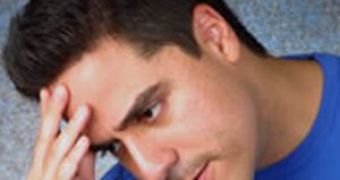A recent research in the field of testicular cancer shows that scientists might have found the cure against this type of cancer. It appears that heat can neutralize and annihilate this kind of cancerous cells and this fact can explain why so many men that suffer from testicular cancer have survived against the odds.
What is known as the amazing "Lance Armstrong effect" has been tested by three medical experts at the Johns Hopkins University, Baltimore. The well-known cyclist that has won the Tour de France seven times has been diagnosed with testicular cancer in 1996. The type of cancer he was discovered to suffer from was highly curable before 1996, but the manner in which he was treated remained of special interest for the scientists.
It seems that the cancerous testicular cells are extremely sensitive to heat and that is why their uncontrollable proliferation can be stopped through heat therapy. This could be explained by the fact that, usually, the temperature of the testicles is a few degrees lower that the temperature of the rest of the body. Therefore, due to the cooler area of the testicles, the cells in there become sensitive to heat.
According to this theory, the cancer testicular cells can be eradicated even when they try to spread to other regions of the body, too. Taking into account that the rest of the body is warmer than the testicles, these cells are going to be stopped naturally by the organism.
The scientists that have come with this theory state that the heat therapy - that is already used in some US medical centers to treat cancer - can also be successfully applied in order to reduce the symptoms or even cure other types of cancer, such as cervical cancer. The most appropriate way of delivering heat to the cancer cells in the body is being under study at the present moment.
"If we understand how heat may naturally help kill testicular cancer cells, then perhaps we can make it happen in other solid tumors. More than 80 per cent of men with widespread testicular cancer can achieve a cure. In other cancers, the cure rate is far less," said Robert Getzenberg, director of Urology Research at Johns Hopkins University.
Donald Coffey, his colleague at the Johns Hopkins University, professor of Urology, Oncology and Molecular Sciences, added: "Heat is at the center of many cellular changes. It drives everything from reproduction to fighting infection - and now we'd like to harness its power to fight cancer."

 14 DAY TRIAL //
14 DAY TRIAL //